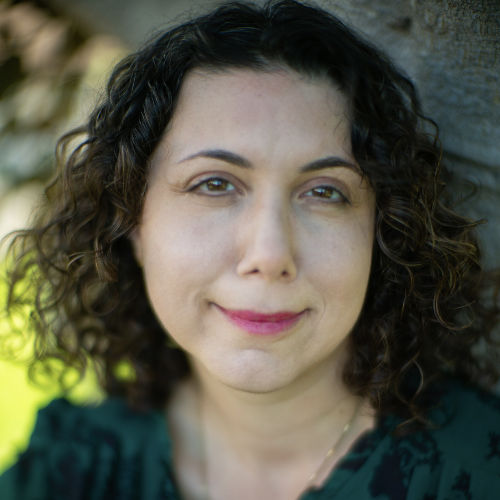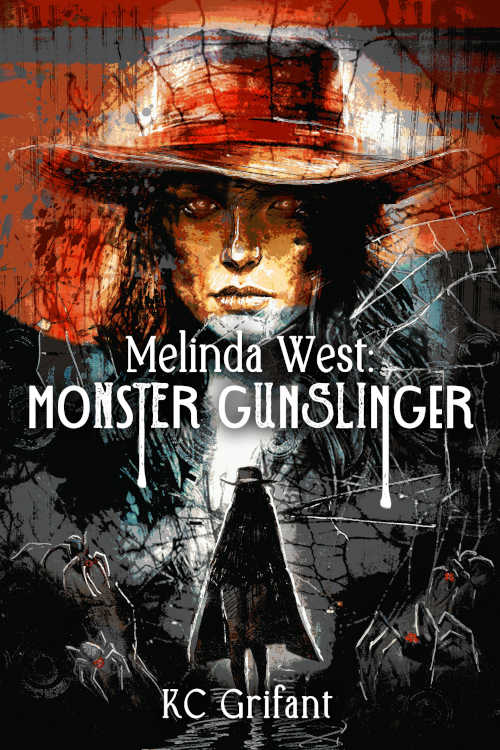Level up your writing: how short stories can enhance your writing career

Consider focusing your efforts on short stories instead of novels, this author suggests, and reap the rewards that this form of storytelling brings.
by KC Grifant
Short stories are a critical part of literature and have been growing in popularity in recent years. Despite this, many authors haven’t ventured into short story territory. In addition to being fun to read, practicing this art form has numerous benefits for both established authors and budding writers. Read on to learn why you should try your hand at a short tale, and tips to keep in mind.
 First, what is a short story exactly, and how does it differ from a novel? Shorter tales can range from exactly 100 words (a “drabble”) or less, to over 8,000 (“novelettes”), with around 2,000–5,000 words being a sweet spot for most markets. Many places also are open to “flash” submissions, which typically are around 1,000 words. (Make sure to always check specific guidelines for a market, as some define the labels differently.)
First, what is a short story exactly, and how does it differ from a novel? Shorter tales can range from exactly 100 words (a “drabble”) or less, to over 8,000 (“novelettes”), with around 2,000–5,000 words being a sweet spot for most markets. Many places also are open to “flash” submissions, which typically are around 1,000 words. (Make sure to always check specific guidelines for a market, as some define the labels differently.)
Books & Buzz Magazine is where writing pros spill their secrets! Subscribe now for free
Given the compressed space, a short story is generally more focused than a novel. Instead of having a cast of characters, a short story follows one, or a few, characters. And rather than several subplots, a short story typically centers on a single pivotal event. Also, every word needs to be carefully considered. The beginning and ending lines in short stories, for example, are especially critical.
Why write a short story?
Time is one major reason to try your hand at short stories. You can complete a draft in a few hours, days, or weeks, and turn around edits and revisions far faster than a novel. Finishing a story of any length in and of itself is rewarding, and can get you into the published world more quickly than a novel.
Make sure something happens in your short story. It sounds obvious, but many short stories fall into the trap of being stagnant.
Short stories also help to hone that specific writing muscle. Because you must be much more economical with words, writing short stories of varying lengths is a useful exercise for authors of all levels. For well-seasoned novel writers, a short story can be an enticing challenge to replenish the wells of creativity. Experimenting with short stories can also help overcome writer’s block.
Another great advantage to short story writing is the chance to get experimental. Because time investment is low, it’s far easier to try out novel techniques and styles than in a novel. You can test voices, genres, approaches, and POVs that you might not want to do in longer form.
For established writers, short stories starring side characters can be tied into your longer novels to offer content to fans in between novel releases, or as an avenue to continue to build your audience. Short stories can often create a breeding ground for longer, successful works. This happened with my debut supernatural western novel, Melinda West: Monster Gunslinger. I wrote short stories about these characters for years beforehand that were well received before diving into the novel. This made writing the novel fairly quick, as the characters and world were already fleshed out.
Lastly, whether a novice or seasoned writer, publishing short stories will grow your network. By submitting short stories to magazines or anthologies, you will connect with other writers, publishers, and editors, especially on social media. For early-stage authors, this is a valuable way to build up your writing resume. And for pro writers, publication in anthologies gets your work out to new audiences.
Short story tips
Keeping in mind a few key points will help make your story rise above the rest. The first is to make sure your opening, or hook, is irresistible. A solid opening is especially vital in short stories. Slush readers often won’t get past a first sentence or paragraph if it is not unique in some way. Resist the urge to open with backstory/a dream/waking up/looking in the mirror. Editors have consistently shared they receive far too many openers in those veins. (For more on this, google “best opening sentences” to see effective technique.)
Consider Hemingway’s six-word story: “For sale: baby shoes, never worn.” This sentence relies on each word to build an emotional backstory.
Another essential tip to keep in mind is this: make sure something happens in your short story. It sounds obvious, but many short stories fall into the trap of being stagnant. More often than not, it’s because they are vignettes—essentially a description, or moment in time. These can be beautiful pieces of writing, but typically they’re not satisfying tales. Just as in a novel, your character should face some sort of conflict and obstacle, and either rise to the challenge or fail in an interesting way.
Lastly, make sure every word counts. Consider Ernest Hemingway’s six-word story: “For sale: baby shoes, never worn.” This sentence is incredibly efficient at relying on each word to build an inferred emotional backstory. One way to hone your skill in brevity is to practice writing stories that adhere to a strict word count, for example, that are exactly 100 words, or under 500 words.
One resource I recommend is A Swim in a Pond in the Rain: In Which Four Russians Give a Master Class on Writing, Reading, and Life by George Saunders. It’s essentially a literary masterclass on short stories. Many online classes, like LitReactor, also offer short story workshops.
Right now is a great time for short fiction, as readers’ appetites for short stories and novellas has increased. Dozens of markets publish stories and offer a variety of pay (ranging from none to several hundred dollars a story). These markets include anthologies, online and print magazines, and podcasts/audio productions. There’s something for everyone in the short story market, so consider giving it a try. Happy writing!
KC Grifant is a Southern Californian author who writes internationally published horror, fantasy, science fiction, and weird west stories for podcasts, anthologies, and magazines. Her writings have appeared in Andromeda Spaceways Magazine, Unnerving Magazine, Cosmic Horror Monthly, and many others. She’s also contributed to dozens of anthologies, including Chromophobia, Musings of the Muse, and the Stoker-nominated Fright Mare: Women Write Horror. A member of Science Fiction and Fantasy Writers Association (SFWA) and a co-founder of the San Diego Horror Writers Association (HWA) chapter, KC enjoys chasing a wild toddler and wandering through beachside carnivals.
Learn more about KC at her website, and connect with her on Facebook, Instagram, and Twitter. All of KC’s social media handles are @kcgrifant.